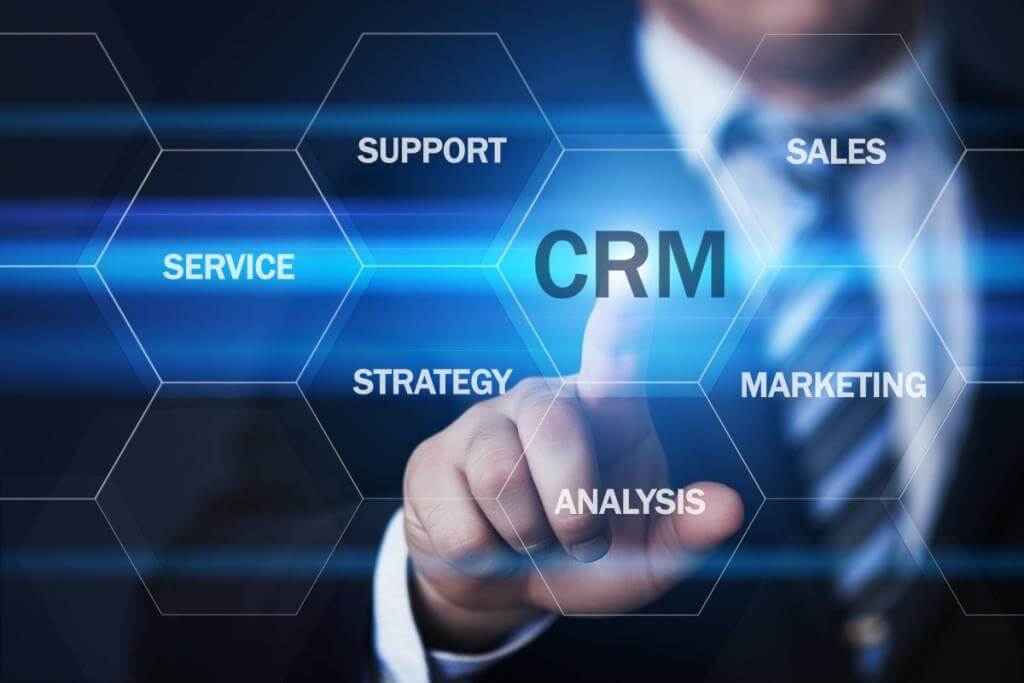CRM helps companies target different audiences and identify results and alerts based on customer activity or individual expected customer proactively working with contacts, maintaining relationships, and the best thing is that CRM can be used across divisions to ensure that all teams facing customers are enabled with the right data to create amazing customer experiences, But customer relationship management is only limited to the rights of these benefits, "Not of course, but the other major benefits of the system that we recognize in the rest of the article.

Customer Relationship Management (CRM) Concept
Customer Relationship Management (CRM) is a single software platform that allows companies to manage and monitor customer relationships with existing and potential customers, and using good CRM customer relationship management, your business can save money, resources and time, but if you find a CRM that is suitable for your business needs, you will save a lot.
Customer relationship management tools can consolidate customer and company data from many sources and even use artificial intelligence to help better manage relationships across the entire customer life cycle, which extends to departments such as marketing and sales, digital commerce, and customer service interactions.
How does CRM work and who works with it?
CRM allows companies to track customer interactions, store data securely, share information with colleagues and manage and acquire expected customers. If you struggle to track your customer information or have an ever-growing database, you can take advantage of CRM, and regardless of the size of your business, automating your operations will inevitably save you money and time.
CRM Customer Relationship Management software is dedicated to companies and industries of all sizes It is useful for large companies that need to easily track customer activity in one place and share it across divisions, Small businesses that often need to do more with less and startups looking for flexibility and efficiency, regardless of your industry or even if you are a nonprofit, if you communicate with customers - Your employees rely on information about these customers - customer relationship management tools can help you.
The most important benefits of corporate customer relations (CRM)
Doing business has become complicated, which is why your company needs to focus on its customers and empower it with the right technology to go to the forefront. This is what distributes CRM customer relationship management solutions. Here are some reasons why customer relationship management solutions are important to your company:
1. Maintenance of a central database
Customer Relationship Management allows the entire sales organization to retain all potential information - Over any period of time - in a central database, this allows rapid access between the team as well as the ability to easily manage all information via a shared site, CRM helps delegates avoid spending time searching files and records to find the information they need about the prospects to follow up and close deals.
2. Manage all communications and interactions with potential customers
All communication, internal (from delegate to delegate) and outside can be managed (Delegate to potential customer), through CRM, this allows representatives to track all parts of the buyer's journey, including every interaction, email, phone call and more, for example, the customer relationship management system will help (CRM) Delegate in determining whether they need to communicate again with a potential customer and when they need it, it will also help your representatives remember whether or not they have already sent a potential client the resources they have requested.
3. Simplified cooperation
Your CRM acts as a record of conversations, interactions, needs, notes and contact information And if it's cloud-based, it's always up to date, and your teammates can easily see its decision-making records, In addition, some basic CRM systems have built-in collaboration tools that allow several people to work on one file at a time or follow the document's progress, such as a sales quote.
Anyone with access to your CRM can work together through this joint record For example, when a salesperson talks with a customer and learns more about it can fill certain fields in that person's record or take notes on his file, This helps to ensure that the rest of the team works in the most up-to-date detail and at their best abilities.
4. Automation of data entry
With CRM, your team will never have to spend time recording emails, calls, meetings and interactions - all this information will be automatically collected and compiled within the system. In addition, CRM allows representatives to update all deals depending on the stage they are in - after which the system will automatically handle the rest (such as weighting, collecting and visualizing), making this process as effective as possible for all concerned.
5. Follow-up with potential customers
CRM tracks all your potential activity, helping your representatives know when they need to follow up with specific prospects. When delegates are reminded of specific follow-ups, they are able to schedule their contact at a time when their support is very helpful to a potential customer. In this way, delegates increase their chances of converting more of these potential customers into clients.
6. Organization of contact data
CRM systems allow your team to track every contact easily (and related data), regardless of the stage of the buyer's journey, and indeed s website, delegates will be able to see if the contact has visited your company's website, or download content from the site, or already talk to another member of your sales team, In addition, representatives can record feedback from their calls or email interactions with contacts and expected customers.
7. Increased productivity
Some of the biggest gains can be achieved by combining customer relationship management with the power of artificial intelligence So this allows you to quickly assemble everything you know about the client, Which can be used to customize each interaction, having this level of knowledge makes every employee smarter and more productive, It provides them with the necessary insights to provide more accurate forecasts about projections such as quarterly sales targets e-commerce sales, or the best time to send a marketing email.
Conclusion:
CRM in short helps companies manage all their interactions with their existing and potential customers. Using the CRM platform, customer details and preferences are recorded and customer activity is tracked, meaning customers receive a fully personalized and consistent experience every time they engage with a company.
other topics:
Fekra’s Software for Restaurant and Coffee Shops Management
Fixed Assets And Custody Management System
reference
1. <<3 Key Factors for C-Suiters when Choosing the Right CRM System>>, martechcube
2. <<Understanding the CRM Acronym>>, serchen

Add New Comment